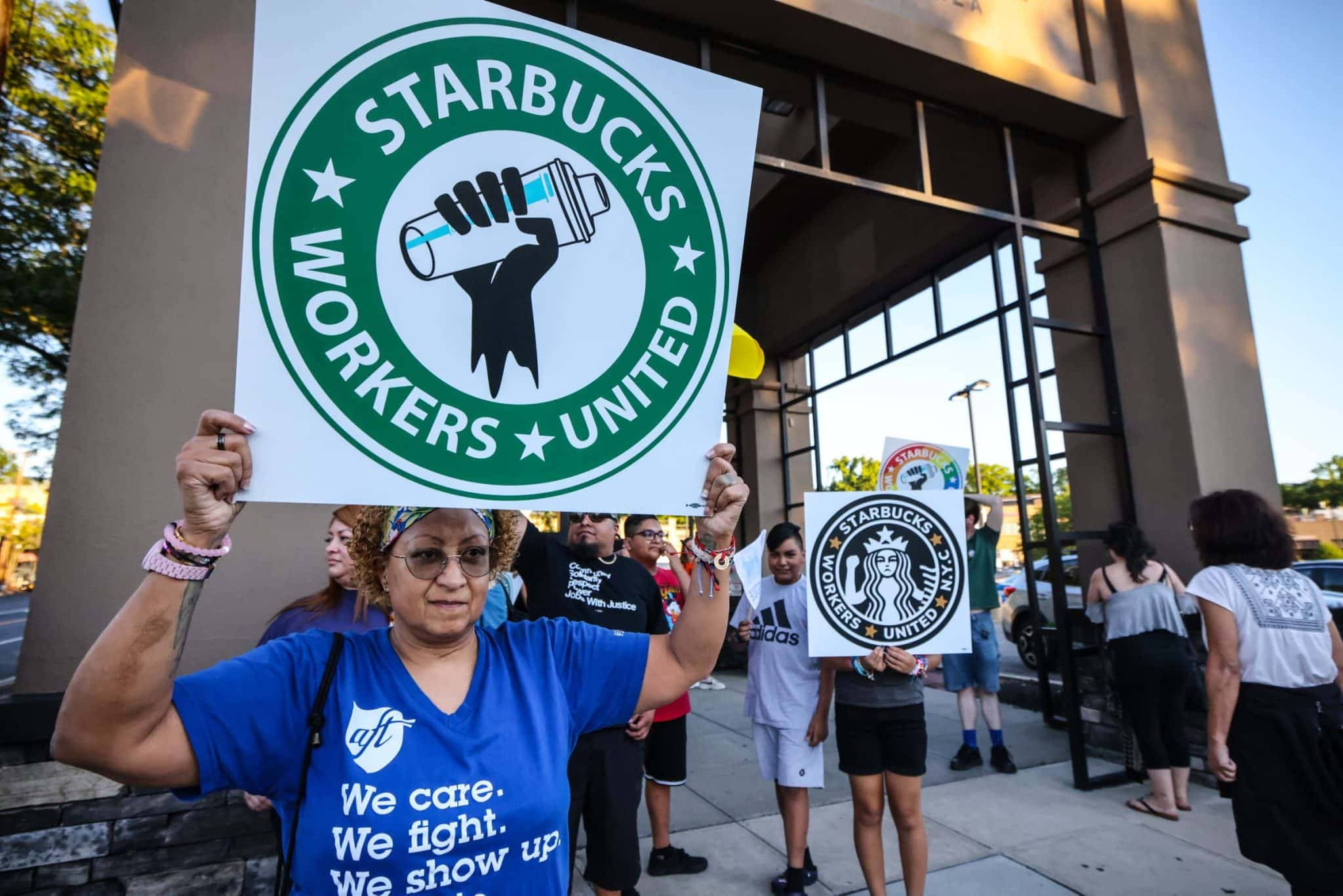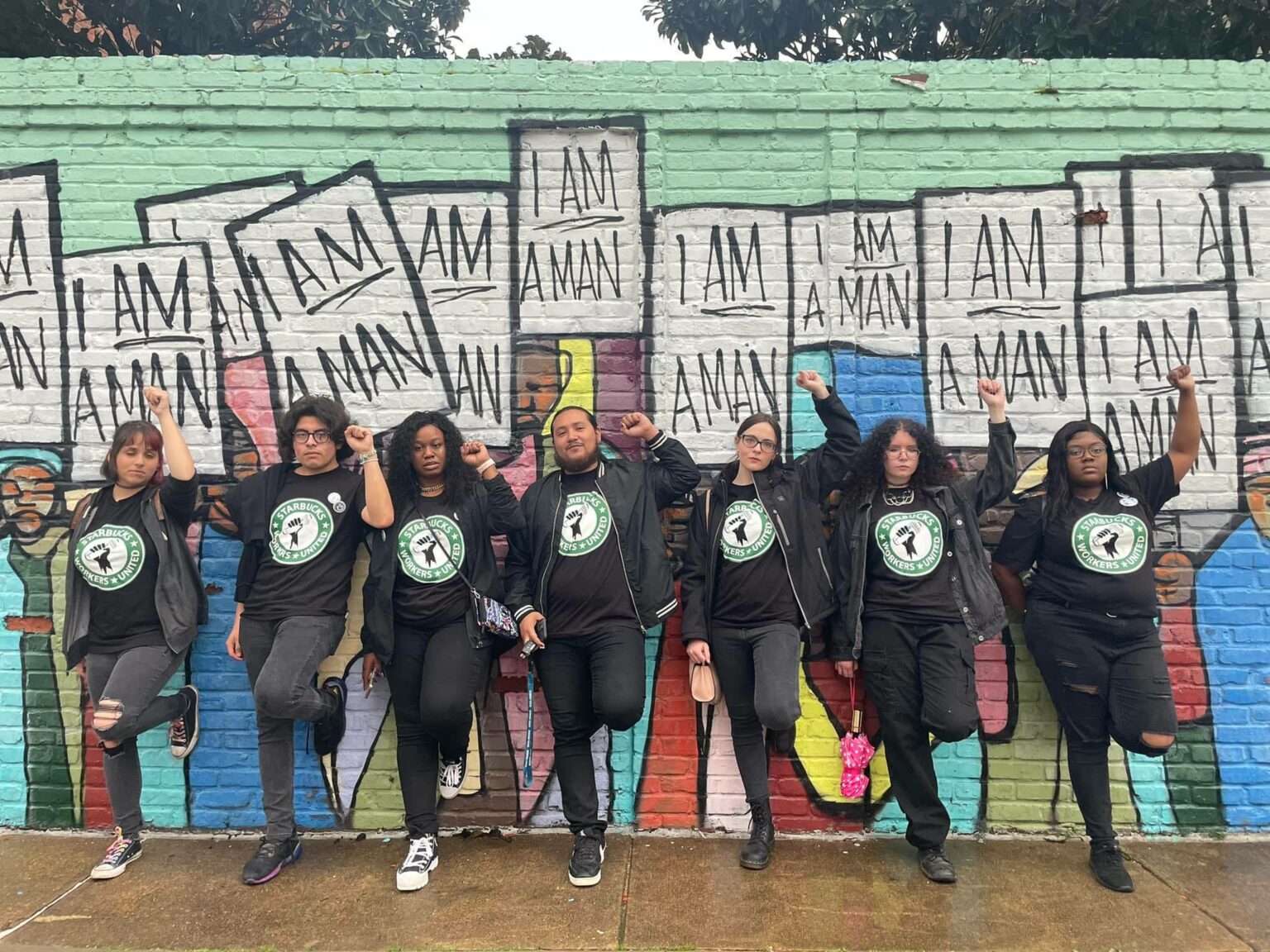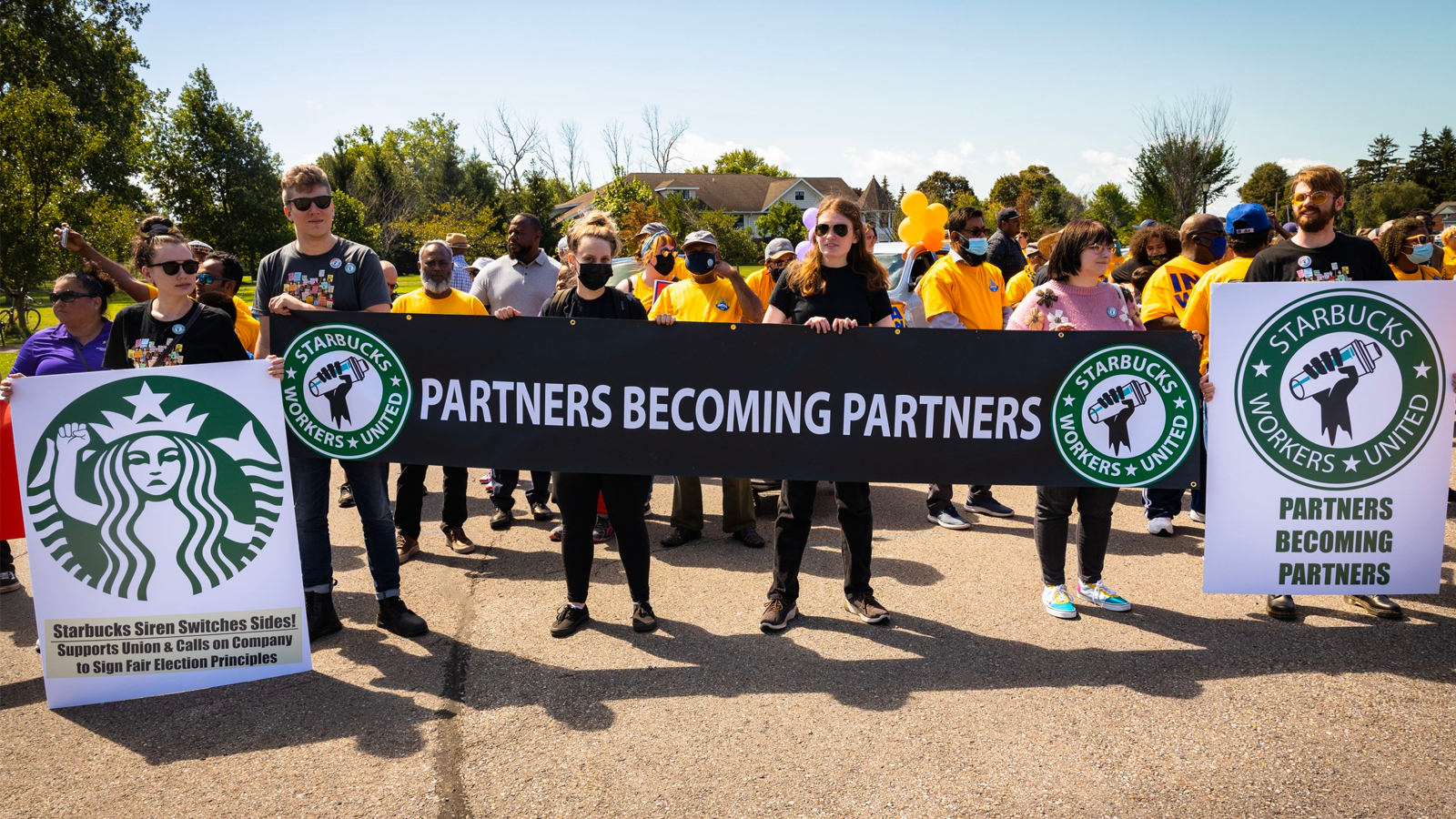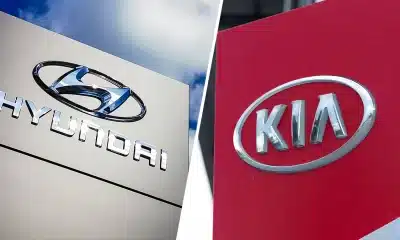Business
Starbucks Takes On The Federal Labor Agency Before The US Supreme Court

After Starbucks dismissed seven employees who attempted to unionize its Tennessee location, a US government agency secured a court order requiring the firm to rehire them. Starbucks now wants the Supreme Court to limit the government’s power in such situations.
The justices will hear Starbucks’ appeal against the National Labor Relations Board, a federal organization that safeguards employees’ ability to organize, on Tuesday. If the court rules with Starbucks, it may make it more difficult for the NLRB to intervene when it claims corporate meddling in unionization efforts.

socialist revolution – VOR News Image
Starbucks Takes On The Federal Labor Agency Before The US Supreme Court
The hearing comes as tensions between Starbucks and Workers United, the union that organizes its employees, have begun to subside. In February, the two sides announced that they would resume negotiations with the goal of completing contract agreements this year. Starbucks and union representatives were set to meet Wednesday for their first bargaining session in over a year.
Since late 2021, workers at 420 company-owned Starbucks stores in the United States have voted to unionize, but none of those stores has reached a labor deal with Starbucks.
The issue before the Supreme Court began in February 2022, when Starbucks dismissed seven employees who were spearheading a unionization campaign in Memphis, Tennessee. Starbucks claimed the staff broke company rules by reopening the store after it had closed and invited non-employees, including a television news crew, to enter.
The National Labor Relations Board concluded that the firings were an improper interference with workers’ ability to organize. The agency discovered that Starbucks often permitted off-duty employees and non-employees to stay in the business after hours to create drinks or collect things.
The NLRB requested that a federal district court intervene and order Starbucks to rehire the employees while the case proceeded through the agency’s administrative proceedings. A district court judge agreed with the NLRB and ordered a temporary injunction, forcing Starbucks to rehire the employees in August 2022. After the 6th Circuit Court of Appeals upheld the ruling, Starbucks filed an appeal with the Supreme Court.
According to Workers United, five of the seven workers are still employed at the Memphis shop, with the remaining two active in the organizing drive. The Memphis store voted to unionize in June 2022.
Ap – VOR News Image
Starbucks Takes On The Federal Labor Agency Before The US Supreme Court
Starbucks argued that the Supreme Court should intervene because federal appeals courts disagree on the conditions that the NLRB must achieve when seeking a temporary injunction against a firm. Starbucks claims that temporary injunctions can be a significant burden for businesses, as the NLRB’s administrative process might take years.
Since 1947, the National Labor Relations Act, which controls the agency, has permitted judges to approve temporary injunctions requested by the NLRB if they are deemed “just and proper.” In its examination of what happened at the Starbucks outlet in Memphis, the Sixth Circuit needed the NLRB to prove two things: that it had reasonable cause to suspect unfair labor practices occurred and that a restraining order would be a “just and proper” solution.
Other federal appellate courts, however, have required the NLRB to meet a four-factor criteria for obtaining restraining orders, including demonstrating that it was likely to prevail in the administrative matter and that employees would suffer irreparable injury if an injunction was not issued.
Starbucks has petitioned the Supreme Court to make the four-factor test the standard that all courts must follow when considering NLRB injunction cases.
“This court’s intervention is urgently needed,” Starbucks stated in an October court petition. “National employers like Starbucks must defend themselves against years-long injunctions under materially different tests depending on where alleged unfair labor practices occur or where employers reside.”

Midwest Socialist – VOR News Image
Starbucks Takes On The Federal Labor Agency Before The US Supreme Court
According to the NLRB, it already assesses the possibility of success before bringing a case to court, so whether courts employ two or four considerations is mainly irrelevant. The agency states that it rarely seeks temporary injunctions from the courts; in the fiscal year 2023, it received 19,869 allegations of unfair labor practices and allowed the filing of 14 lawsuits seeking temporary injunctions.
“The two-part inquiry undertaken by the Sixth Circuit and other courts … subjects board petitions to meaningful scrutiny, and does not call for courts merely to ‘rubber-stamp’ agency requests,” the National Labor Relations Board (NLRB) stated in a filing
SOURCE – (AP)
Business
Internet Archive Loses Major Copyright Case Court Rejects Their Arguments

The Internet Archive has lost a critical legal battle, potentially affecting the future of internet history. Today, the US Court of Appeals for the Second Circuit decided against the long-running digital archive, affirming a previous decision in Hachette v. Internet Archive, which determined that one of the Internet Archive’s book digitization initiatives infringed copyright law.
Notably, the appeals court’s ruling rejects the Internet Archive’s argument that its lending practices were shielded by the fair use doctrine, which permits for copyright infringement in certain circumstances, calling it “unpersuasive.”
In March 2020, the Internet Archive, a San Francisco-based nonprofit, launched the National Emergency Library, or NEL. The epidemic had forced library closures that prevented students, scholars, and readers from accessing millions of books, and the Internet Archive has stated that it was answering to calls from common people and other librarians to assist individuals at home in obtaining the books they required.
The NEL was an extension of the Open Library, an ongoing digital lending experiment in which the Internet Archive scans physical copies of library books and allows individuals to borrow digital versions as if they were conventional reading material rather than e-books. The Open Library lent the books to one person at a time—but the NEL eliminated this ratio requirement, allowing a large number of people to borrow each scanned book at once.
Shortly after its inception, the NEL faced criticism, with some authors claiming that it amounted to piracy. In response, after two months, the Internet Archive abandoned its emergency strategy and imposed lending caps. But the harm had been done. Major publishing giants, including Hachette, HarperCollins, Penguin Random House, and Wiley, filed the complaint in June 2020.
In March 2023, the district court found in favour of the publishers. Judge John G. Koeltl determined that the Internet Archive had created “derivative works,” claiming that its copying and lending had “nothing transformative” to offer. Following the initial verdict in Hachette v. Internet Archive, the parties reached an agreement, the specifics of which have not been released; however, the archive has filed an appeal.
According to James Grimmelmann, a professor of digital and internet law at Cornell University, the ruling is “not terribly surprising” in light of recent court interpretations of fair use.
Internet Archive won the appeal
The Internet Archive won the appeal, but only narrowly. Although the Second Circuit upheld the district court’s first decision, it underlined that it did not regard the Internet Archive as a commercial business, emphasising that it was clearly a charitable organisation. Grimmelmann believes this is the appropriate decision: “I’m glad to see that the Second Circuit fixed that mistake.” (He joined an amicus brief in the appeal, saying that classifying the use as commercial was incorrect.)
“Today’s appellate decision upholds the rights of authors and publishers to license and be compensated for their books and other creative works, and reminds us in no uncertain terms that infringement is both costly and antithetical to the public interest,” Association of American Publishers president and CEO Maria A. Pallante said in a statement.
“If there was any doubt, the Court makes clear that under fair use jurisprudence there is nothing transformative about converting entire works into new formats without permission or appropriating the value of derivative works that are a key part of the author’s copyright bundle.”
In a statement, Internet Archive director of library services Chris Freeland expressed dismay with “today’s opinion about the Internet Archive’s digital lending of books that are electronically available elsewhere.” We are reviewing the court’s decision and will continue to defend libraries’ right to own, lend, and preserve books.
Dave Hansen, executive director of the Author’s Alliance, a nonprofit organisation that frequently advocates for increased digital access to books, also spoke out against the verdict. “The authors are researchers. “Authors read,” he says. “IA’s digital library assists authors in creating new works and encourages their desire to have their works read. This verdict may boost the bottom lines of the largest publishers and most well-known authors, but it will harm more people than it will help.
Difficult period for copyright law
The Internet Archive’s legal problems are not ended. In 2023, a collection of music labels, including Universal Music collection and Sony, sued the archive for copyright infringement on a music digitization project. That case is still working its way through the courts. The damages might total up to $400 million, posing an existential danger to the nonprofit.
The new ruling comes at a particularly difficult period for copyright law. There have been scores of copyright infringement cases filed against large AI businesses that provide generative AI tools in the last two years, and many of the defendants contend that the fair use doctrine protects their use of copyrighted data in AI training. Any big lawsuit in which judges reject fair use grounds is widely monitored.
It also comes at a time when the Internet Archive’s critical role in digital preservation is becoming increasingly apparent. The archive’s Wayback Machine, which catalogues website copies, has proven to be an invaluable resource for journalists, scholars, lawyers, and anybody interested in internet history. While there are other digital preservation programs, including national efforts by the US Library of Congress, there is nothing comparable available to the public.
Business
Hewlett Packard Won’t Drop Its UK $11 Billion Claim Against Tech Mogul Mike Lynch, Who Died When His Yacht Sank

LONDON — Hewlett Packard Enterprise announced Monday that it will not dismiss its U.K. claim for damages against the estate of British tech entrepreneur Mike Lynch, who died when his superyacht drowned last month.
In 2022, Britain’s High Court decided primarily to favor the US technology giant, which accused Lynch and his former finance director of fraud concerning its $11 billion acquisition of his software company Autonomy. Hewlett-Packard is seeking up to $4 billion in damages, and the judge is anticipated to make a ruling on the exact amount shortly.
AP News Image
Hewlett Packard Won’t Drop Its UK Claim Against Tech Mogul Mike Lynch, Who Died When His Yacht Sank
Mike perished when his yacht, the Bayesian, fell in a storm off Sicily on August 19. His widow, Angela Bacares, may now be liable for the damages.
Mike was acquitted in a separate US criminal trial of fraud and conspiracy in the agreement months before the sinking.
Hewlett Packard initially applauded its pricey 2011 acquisition of Lynch’s company but soon began to regret it. The corporation stated on Monday that it had “substantially succeeded” in its civil fraud allegations against Lynch and the former finance director, Sushovan Hussain.
“It is HPE’s intention to follow the proceedings through to their conclusion.”
However, the U.K. civil action judge has already concluded that the amount payable in damages will be “substantially less” than what the company is demanding.
The Lynch family’s spokesman declined to respond.
Mike and his daughter Hannah were among six passengers killed when the 56-meter (184-foot) luxury boat sank. One crew member, the boat’s chef, also perished, while 15 people escaped the accident. They gathered on the yacht to celebrate Lynch’s acquittal.
Hewlett Packard Won’t Drop Its UK Claim Against Tech Mogul Mike Lynch, Who Died When His Yacht Sank
Officials first reported that the boat was hit by a tornado over the water, known as a waterspout, but the weather phenomena was later identified as a downburst. Italian prosecutors are investigating the captain on possible accusations of manslaughter.
SOURCE | AP
Business
2024 | Elon Musk Hits Out At Judge Threatening To Suspend X In Brazil

Elon Musk has escalated his online attacks on a Supreme Court judge who has threatened to stop social media platform X in Brazil, labeling him “an evil dictator” in an ongoing battle between the two men.
Justice Alexandre de Moraes threatened to suspend X if Musk did not identify a new legal agent for the company in Brazil and pay any outstanding daily fines within 24 hours.
“Alexandre de Moraes is an evil dictator cosplaying as a judge,” the world’s richest person commented on X.
Elon Musk Hits Out At Judge Threatening To Suspend X In Brazil
Musk, who previously referred to de Moraes as “Darth Vader,” retweeted a statement from X’s Global Government Affairs team announcing that the judge’s “illegal demands and all related court filings” would be published in the coming days.
Brazil is a key market for social media networks. According to the Associated Press, around 40 million Brazilians, or roughly 18% of the population, use X at least once a month.
The trash-talking is the latest salvo in Musk’s spat with de Moraes, which revolves around free speech and alleged disinformation. X said earlier this month that it would suspend its business and lay off its employees in Brazil owing to what it described as “censorship orders” from the judge.
De Moraes had ordered the social media company to ban several X accounts he claimed were disseminating misinformation.
The most recent statement, signed by de Moraes, was also posted on the Supreme Court’s official X account, tagging both Musk and X’s Global Government Affairs account.
The Supreme Court statement was uploaded around 8:30 p.m. local time on Wednesday, giving Musk till Thursday evening local time to answer.
‘Censorship Orders’
On August 17, X issued a lengthy statement announcing that it would be forced to suspend operations and terminate employees in Brazil due to de Moraes’ “censorship orders.”
“Despite our numerous appeals to the Supreme Court not being heard, the Brazilian public not being informed about these orders and our Brazilian staff having no responsibility or control over whether content is blocked on our platform, Moraes has chosen to threaten our staff in Brazil rather than respect the law or due process,” according to the statement from X.
Elon Musk Hits Out At Judge Threatening To Suspend X In Brazil
“As a result, to ensure the safety of our employees, we have decided to close our activity in Brazil, effective immediately. The X service remains available to Brazilians. We are profoundly saddened to have been compelled to make this decision. Alexandre de Moraes is exclusively responsible.
“Due to demands by ‘Justice’ Alexandre [de Moraes] in Brazil that would require us to break (in secret) Brazilian, Argentinian, American and international law, X has no choice but to close our local operations in Brazil,” he said on X’s website.
SOURCE | AP
-
Business4 weeks ago
Are You A Cash App User? You May Be Eligible For A Piece Of This $15 Million Settlement
-
Celebrity4 weeks ago
Liza Minnelli Is ‘Mad As Hell’ And Writing New Memoir
-
Business4 weeks ago
Susan Wojcicki, Former YouTube CEO And Longtime Google Executive, Has Died At 56
-
News4 weeks ago
Travis Scott Is Arrested At A Paris Hotel After Altercation With A Security Guard, Prosecutors Say
-
Sports4 weeks ago
Lydia Ko Finally Gets Her Olympic Gold. It Puts Her Into The LPGA Hall Of Fame
-
Business4 weeks ago
After A Rash Of Stolen Cars, Hyundai And Kia’s New Anti-Theft Software Is Showing Results












































